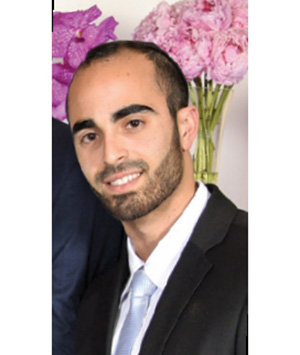
When the month of Elul comes, and the impending Day of Judgment, Rosh Hashanah, we not only are reflecting on specific actions we may have done or need to improve, but perhaps much more importantly we are thinking deeply on the purpose of life. To pause and ask ourselves, “Is this life that I am living a life that is meaningful?” “Where exactly am I going?” “Am I honestly happy?” “Is my perspective on life enabling me to maximize my potential in life and create a constant closeness to Hashem?”
The Torah in this week’s parsha pushes us to ask these questions, to think about our definition of life, and what we are striving toward each and every day. Hashem urges, I have set before you today life and good, and death and evil…I command you this day to love the Lord, your God, to walk in His ways, and to observe His commandments, His statutes, and His ordinances, so that you will live… I have set before you life and death, the blessing and the curse. You shall choose life…” (Devarim 15,16,19). The Torah tells us that “life” and living in true happiness comes through living with the Torah.
Some may unfortunately think that living a Torah life is a limiting lifestyle, and it restrains and restricts them from doing that which they may desire. In truth, the Torah is meant to protect us from ideas, actions and lifestyles that infringe and distract us from living a happy life. The Gemara in Kiddushin says, “I created the yetzer hara; I created the Torah as its antidote.” Very practically, this means that any desires and aspirations outside the confines of Torah may very well be the scheme of the yetzer hara to delude one into thinking there is meaning and happiness outside of Torah, when in truth the Torah tells us that it’s just a mirage, and the way to see through the facade is by delving into Torah and living a Torah life.
“You shall choose life.” It’s kind of strange for the Torah to tell us to choose life; who wouldn’t? R’ Mordechai Kamenetzy explains that Hashem is teaching us that the greatest pleasure of living in this world is through Torah (“to walk in His ways…so that you shall live”). He brings the famous story of Rav Aharon Kotler, a great sage who epitomized a life steeped in Torah study. After escaping the ravages of World War II, he established the kollel (fellowship program) of Beth Medrash Govoah, in Lakewood, New Jersey. It is there that married scholars studied Torah day and night and received a small stipend. After two years of kollel study one aspiring prodigy had a lucrative business opportunity in which he was guaranteed a very substantial living. He approached Reb Aharon. “Rebbe, is it true that if a businessman supports a Torah scholar in a contractual arrangement, then he shares the reward of the World to Come with his partner? Reb Ahron answered in the affirmative, explaining the concept of the Yissachar-Zevulun partnership. (Zevulun was a merchant and his brother, Yissachar, was a sage. They entered a business arrangement to share equally both financial and spiritual rewards.) “If that is the case,” the student continued “I’d like to enter into an arrangement with a kollel member. You see, Rebbe, I have a wonderful opportunity to make quite a bit of money and this way I’ll still be guaranteed the World to Come.” Reb Aharon was stunned. “How can you leave learning?” The student responded meekly, “But won’t I still enjoy the world to come?” “Of course!” exclaimed the rosh yeshiva, “but if you leave learning, how will you enjoy this world?” Indeed, involvement in Torah study and observance of mitzvot are not just rituals, they are life to its fullest.
One of my rebbeim—Rabbi Dessler—used to ask: In the bracha of Hashiveinu in the Shemoneh Esrei, we say “Return us, our Father, to Your Torah.” Why do we specify Torah, and not just say “return us to you”? R’ Dessler explained that this teaches us that teshuva, returning to Hashem, is accomplished through Torah. And I thought, perhaps we can extend this to this idea above. If we want to do teshuva, let’s perhaps consider the quality of our lives and where we are heading. One who ponders this deeply enough may come to the recognition that the only life that can be determined as life is one where Torah is infused into daily living. In this sense, instead of focusing on finite deeds that we may want to improve, we are returning to Hashem far more collectively, in a much broader sense. We are essentially saying to Hashem, I don’t just want to fix up this and that deed or behavior, but rather, I want to amend and re-configure my entire life (and fixing up singular deeds will be a natural result of such). Effectively, may we merit in such an instance for Hashem to respond back, “You want to improve the quality of your entire life; let’s give you an entirely good life this year…”
Binyamin Benji is a graduate of Yeshivas Rabbeinu Yitzchak Elchanan, and Wurzweiler School of Social Work. He currently learns in Lakewood and is the author of the Sephardic Congregation of Paramus’ weekly Torah Talk. He can be reached at benjibenji26@gmail.com.










